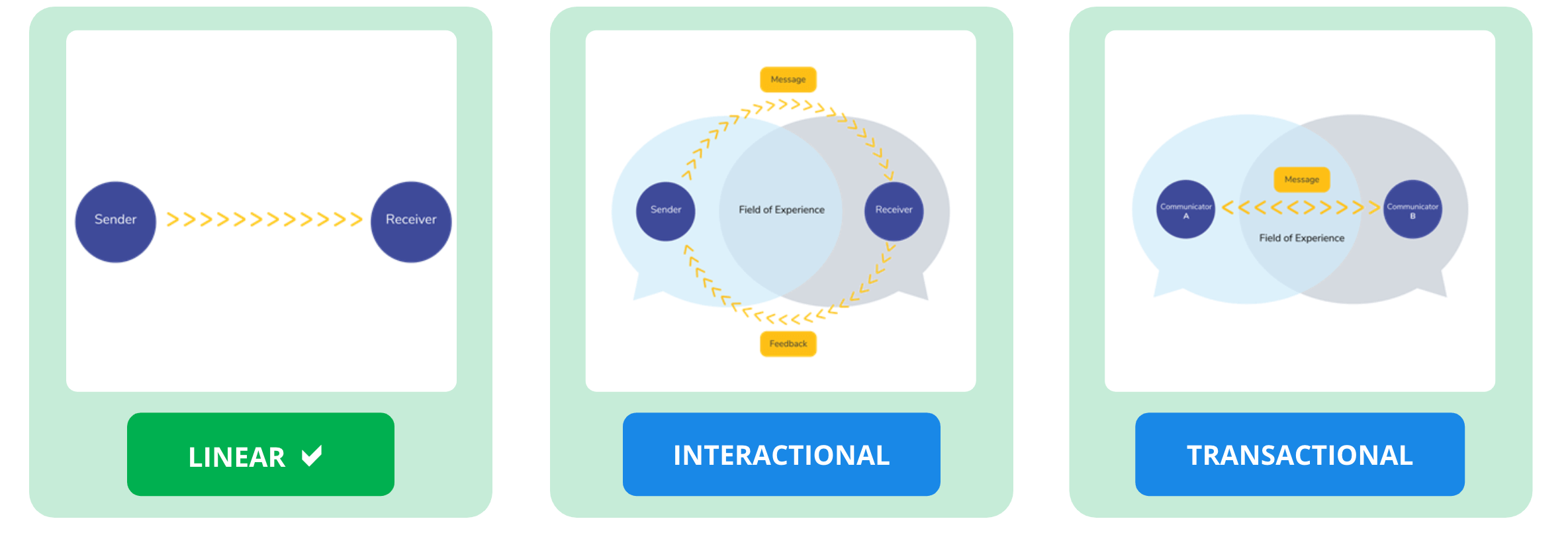Danielle Keen from the EtonX Content team explains how EtonX content is evolving based on feedback
EtonX has launched new versions of courses for all three of our goals: Become a Leader, Get into University and Start a Career. The changes reflect student feedback and assessment data. It’s not just students that we encourage to adopt a growth mindset. At EtonX we take a proactive approach to learning and development ourselves!
Content Changes
In response to student comments, we’ve boosted the interactivity of our courses, making sure that activities require more student input. We have also made changes that ensure that we are delivering information as clearly and efficiently as possible. This has included shortening videos and restructuring the order of some sections. The aim of these changes is to encourage more active learning, so that students are applying what they’ve learnt by using the skills we teach at an earlier stage in the course. Finally, we changed specific activities so that all our case studies, insights from key thinkers and overarching concepts are relevant and up to date for each course.
Examples of our favourite content changes include:
Critical Thinking
We’ve varied the video content in Critical Thinking so that students are exposed to different arguments and ways of challenging them. We have included an excerpt from Hans and Ola Rosling’s TED talk: How Not to be Ignorant about the World, encouraging students to reflect on how and when they might be prone to biased thinking. There’s also a quick-fire debate on the use of slang in classrooms from the Guardian, featuring author Michael Rosen.
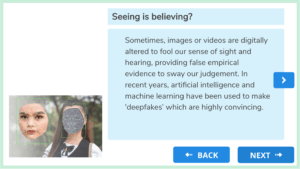
Making an Impact
We’ve updated our case study on a highly impactful young person to Vanessa Nakate, a climate activist from Uganda. Nakate has advocated for young people and African nations’ climate interests on the world stage. Having begun by emulating Greta Thunberg’s climate strikes in her hometown, Nakate’s journey to COP26 and other global platforms demonstrates how it’s possible to have a meaningful impact at every level.
Resilience
We’ve created new presentations to explain key concepts in interactive and engaging ways. In Resilience, this includes new graphics to illustrate the importance of pushing yourself outside of your comfort zone to learn new skills. Students select each part of the diagram, which explains the corresponding step in the learning process and allows them to unlock the next one. Selecting each step and working through the content helps students to retain what they’re being taught.
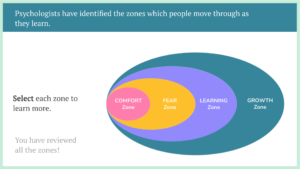
Verbal Communication
Similarly, a more engaging presentation has been added to introduce the Verbal Communication course. This uses recognised models of behaviour and a more interactive approach, including quiz questions that test students’ understanding of what they’ve learnt. Being quizzed on the content early means that students are both more likely to retain what they’ve learnt and are better able to evaluate their own progress.
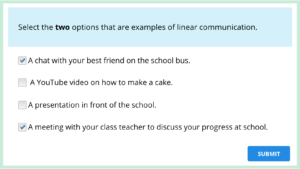
CV Writing
To vary our content in CV Writing, we’ve included new audio. Students can now hear from recent graduates, who explain how the skills and experiences they gained throughout school and university enabled them to secure roles that prepared them for the graduate job market. This activity is not only different in format but relatable and motivational, making students aware of how the clubs, volunteering and part-time work can help them achieve future goals.
Orientation
We’ve also revamped our Orientation section, so that students can be confident of what they need to do and how they will be taught in each part of their course. Mirroring changes that have been made elsewhere, this section offers a more visually engaging and accessible introduction to the course. The presentations outline the key components of an EtonX course:
- Self-Study,
- Peer Learning,
- Progress Reports,
- Reflection,
- Live Classes (for Tutor Group).
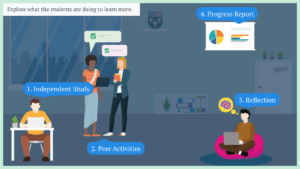
By communicating the structure and what’s expected of them clearly, we think that students will feel more confident tackling each section of the course.
Diagnostic Test Changes
Our diagnostic tests are one method that we use to track student progress. These are paired situational tests that bookend our courses, allowing us to compare a student’s skill level before and after they finish a course. The tests provide students with a scenario in which they need to apply just one of the skills (e.g. tailoring your CV) that comprises the course topic (CV Writing) and identify the best and worst way to handle that situation.
These tests were launched at the beginning of 2021 so we had a year’s worth of student completion data to analyse. We combed through the data to see which questions were proving too easy or too difficult and made adjustments. These included making the language more nuanced so that the best and worst options couldn’t be intuited without course knowledge, and rewriting scenarios, so that they closely match the course content relating to the skill they test. These changes ensure that we’re better able to assess the efficacy of our courses at a granular, skill-by-skill level, identifying any future areas for improvement.
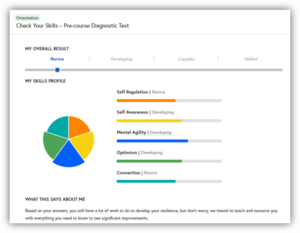
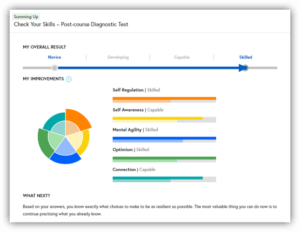
Accessibility
We’ve also focused on increasing access to our courses, so that everyone learning with EtonX can have a great experience.
Firstly, to help students with visual impairments, a new colour scheme has been adopted to maximise the contrast between text and screen. We’ve also added image descriptions and audio readouts for interactive tasks and presentations. This means that all activities where a visual component is vital to the student’s learning experience are communicated in a way that’s accessible for all.
Secondly, in response to the changing ways that students access our courses, we’ve converted our presentations to a new, mobile-friendly format. This means that they look just as good when viewed on a smaller screen.
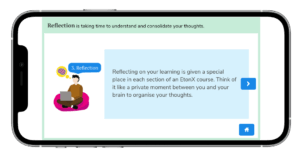
Over to You
We’re really pleased with this round of updates and hope that you will be too. We look forward to new and returning students completing these courses and receiving their feedback (and yours) about the changes we’ve made.
If you’d like to take a look at any of the updated courses, you can request a free 2-week trial here.
